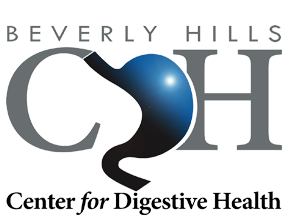Eating Habits That Can Help Improve Colon and General Health
BOOK APPOINTMENTSince our intestines filter the excess of our food, it’s important to make sure we’re providing them with the vitamins they need to function properly.
While taking care of your health can seem like a daunting task, it’s not. In fact, you can improve it with just a few habits that help improve colon and general health.
In this post, we’ll show you what you can add to your diet to feel better immediately.
1. Avoid sugar and add fiber-rich food in your diet
Sugar often leads to obesity and other health problems which can reflect on the state of your colon, so avoid it as much as possible. A good alternative is natural sugar from fruit such as: oranges, apples, bananas, which are also rich in other vitamins.
Since fiber helps in processing food and preventing constipation, add it with food such as: whole grains, quinoa, wild rice, broccoli and pears. Ideally, you should consume 30 grams of fiber per day.
Adding more fruit to your diet will help your general health, as well.
2. Add probiotics to your diet
Probiotics found in yogurt are extremely helpful at improving your colon health. They reinforce the positive bacteria found in our digestive systems, so make sure you’re getting your regular dose of yogurt.
3. Eat colorfully
Dr. Shawn Khodadadian, a gastroenterologist from New York, advises improving colon and general health by adding some color into your diet:
Eat red food rich with vitamin C and B9 such as: tomatoes, beets and cranberries. Not only do they help your colon, but they also decrease the risk of cancer.
Up your intake of orange and yellow food like carrots and mangoes. The alpha-carotene in them promotes eye health, a glowing skin, as well as reduced risk for stomach, colorectal and pancreatic cancers.
Eat green vegetables like spinach which contain beta-carotene because they’re a proven anti-cancer agent. In fact, if you eat just one extra serving of leafy greens which contain vitamins A, K and calcium, you’ll also be reducing the risk of type 2 diabetes.
Blue and purple foods contain a lot of anthocyanins, and they prevent colorectal and esophageal cancer. Just a serving of blueberries, grapes or eggplants can go a long way towards improving your health.
4. Limit red meats, alcohol and processed foods
Instead of getting your proteins from red meats that have a connection to colon cancer, opt for more fish in your diet and avoid eating red meat every day. Alcohol can also harm your health as it is one of the major factors contributing to the risk of colon cancer.
Finally, cook as much as possible and eat raw vegetables and fruit. Processed foods contain additives and lack the vitamins a healthy colon needs.
5. Exercise
Finally, nothing helps bowel movements as much as healthy food and plenty of exercise. Incorporate walking into your daily routine, and pick up a hobby that’ll pull you outdoors.
And yes – make sure you grab a yogurt for the road!
Our Blogs
Accurate Diagnostics for Anorectal Strength and Function
Back to BlogsAre you having problems producing healthy bowel movements? The problem may be the muscles around your digestive tract either not coordinating properly or lacking strength. To get your GI problems addressed as soon as possible, visit the Beverly Hills...
Pelvic Floor Dysfunction?
Back to BlogsPelvic floor dysfunction is the inability to relax and coordinate your pelvic floor muscles to allow for smooth defecation. Fortunately, there are treatments available, including biofeedback, medications, and physical therapy. Reclaim strength and comfort...
Cutting-Edge, Compassionate Care Can Help You Find Hemorrhoids Relief
Back to BlogsHemorrhoids can be debilitating and painful, but treatment is available. If you’re suffering from hemorrhoids, make an appointment at the Beverly Hills Center for Digestive Health. We offer cutting-edge, compassionate care to help you find hemorrhoids...
Call to Schedule
Our office is available to answer your questions and evaluate your symptoms.

Phone
(310) 855-0222
Fax: (949) 404-6467
Hours
Mon - Fri: 9am – 5pm
Sat - Sun: Closed